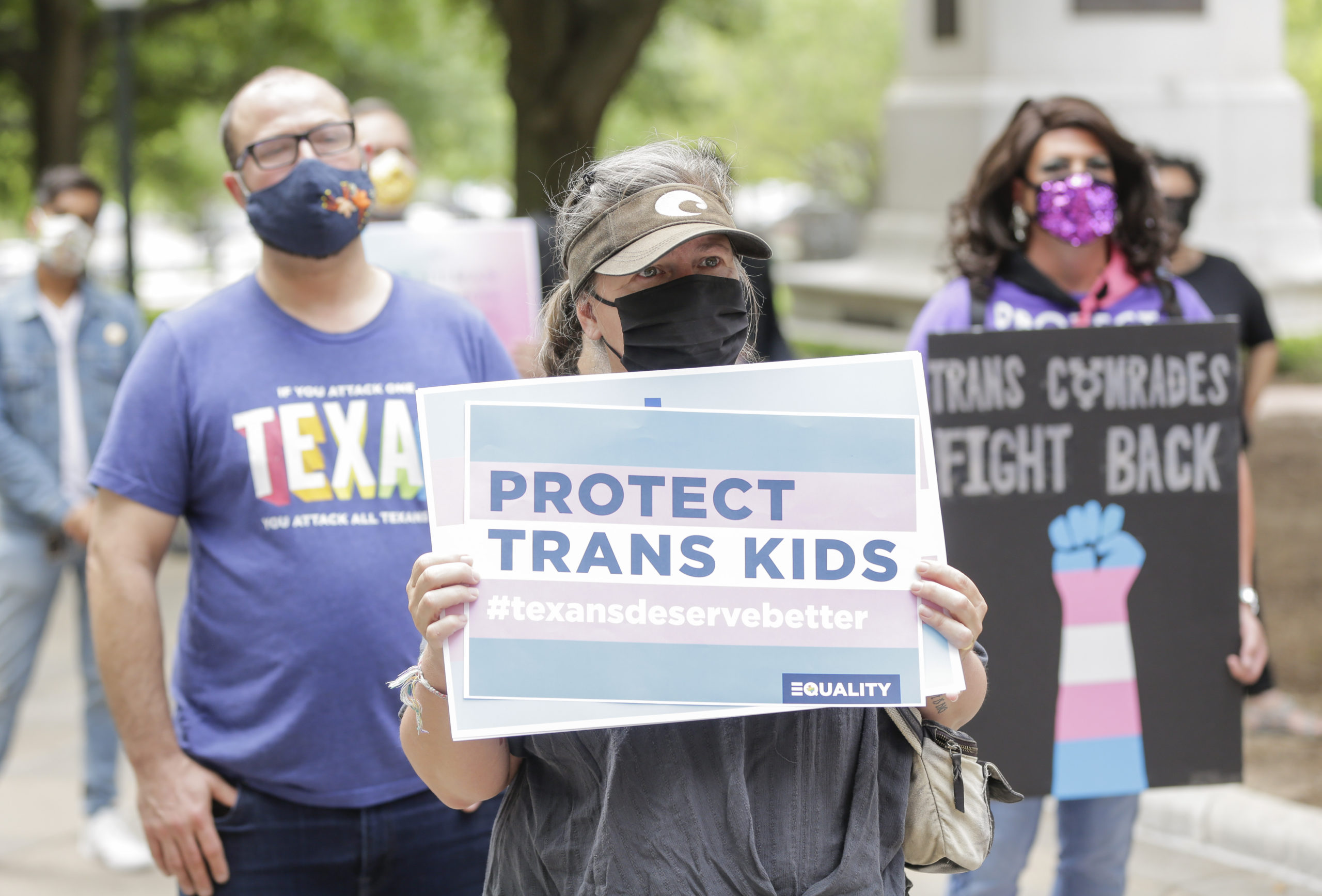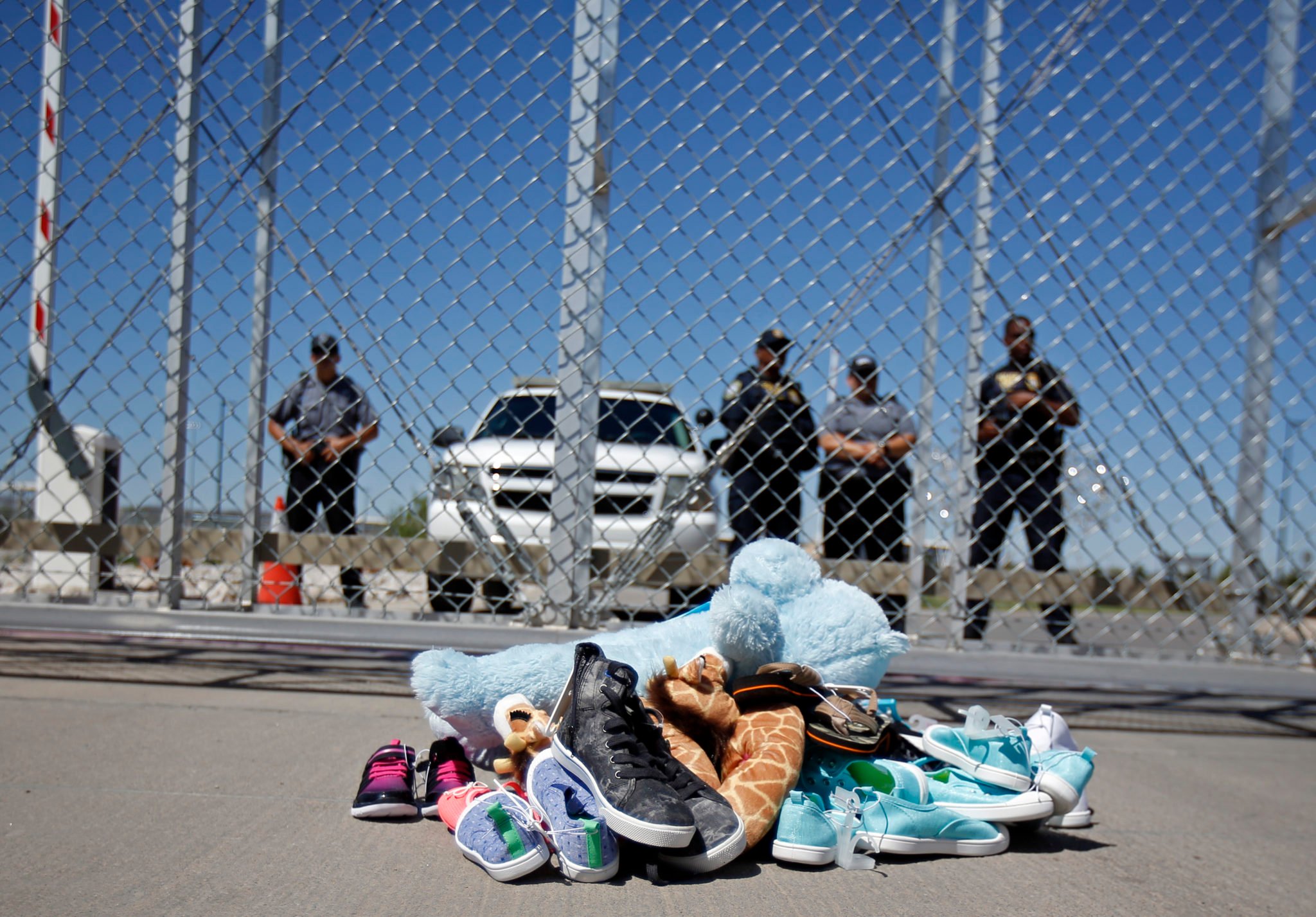
Child Protective Services Refusing to Help Child Crime Victims with Immigration Visas
The agency’s blanket ban on issuing certifications puts an already vulnerable group in a precarious situation.

For the past eight months, Texas Child Protective Services has quietly rejected requests for help from undocumented children who are the victims of crime. In April, the agency abandoned its policy of providing certifications for special immigration visas that protect crime victims who are helping law enforcement in an investigation. Lawyers and advocates who file on behalf of child victims say they were given no explanation for the sudden policy change.
“There wasn’t an announcement or anything like that,” said Glenaan O’Neil, a regional director of immigrant victims services at the Texas Civil Rights Project. O’Neil said that she submitted a request for a young victim of domestic violence in May. “I was told, ‘Oh, we’re not going to do those anymore.’” She immediately started contacting colleagues at other advocacy organizations, and quickly learned they’d also been given the runaround by CPS.
The visa, officially known as a U nonimmigrant visa, was created by Congress in 2000 as part of the Victims of Trafficking and Violence Protection Act. It allows immigrant victims of crime to stay in the U.S. for up to four years and makes them and their family members eligible to apply for a green card.
In order to apply for the visa, a law enforcement agency must certify two things: that the applicant is the victim of a qualifying crime and that they have been helpful in investigating the crime. The full application is then sent to U.S. Citizen and Immigration Services for further investigation and approval. The Department of Homeland Security includes “federal, state and local child and adult protective services” in its list of law enforcement agencies, though the decision to provide the certifications is up to each agency.
Department of Family and Protective Services spokesperson Patrick Crimmins told the Observer that the decision in April to stop the certifications was part of a “routine review” of the agency’s protocol, which had been in place since 2010.
“The legal department concluded the certifications are more appropriate for criminal investigative agencies and instructed CPS to discontinue the practice,” he said.
But CPS has nonetheless taken an increasingly law enforcement-oriented tack. That same month, Governor Greg Abbott appointed Henry “Hank” Whitman, a former Texas Ranger, as the agency’s new commissioner. Whitman’s CPS has since sent state police to find nearly 1,000 children caseworkers neglected to check on, and prioritized hiring 100 new special investigators with law enforcement backgrounds.
“The decision to no longer protect immigrant victims of crime should not be made in the dark without discussion with the immigrant advocacy community.”
Advocates argue that the agency’s blanket ban on issuing certifications puts an already vulnerable group in a precarious situation. Law enforcement officials have long worried that undocumented immigrants are at increased risk of becoming victims of crime, yet are less likely to report them.
“I think that CPS should be certifying these cases because they are often the first ones responding and sometimes the most intimately involved in detecting and investigating crimes against children,” said Julie Wimmer, an attorney at Texas RioGrande Legal Aid. “The decision to no longer protect immigrant victims of crime should not be made in the dark without discussion with the immigrant advocacy community.”
Since the policy was implemented, Wimmer said she’s had several clients fail to apply for U visas because they couldn’t get certification from CPS, and other law enforcement wouldn’t get involved. In some cases, crimes are also investigated by other agencies — usually police — but they each have their own policies on whether they will sign certifications.
“Some law enforcement agencies are great, and some really take issue with Congress having created this humanitarian protection for victims,” Wimmer said. Until April, CPS was one of the few agencies lawyers could count on to sign certifications for child victims, regardless of where they were located.
According to a 2010 report from the Center for Public Policy Priorities (CPPP), undocumented children in state care are “more than five times as likely to come into care for sexual abuse” and also tend to skew older and female, while the perpetrators are more frequently siblings or step-parents, as opposed to biological parents.
The report also pointed out that undocumented individuals “may be reluctant to report abuse for fear of becoming entangled with authorities and subsequently deported.”
But that reluctance is exactly what the U visa was designed to address.
“It’s a humanitarian form of relief because it talks about someone who has suffered from a violent crime and how to make that person whole again,” said Edna Yang, the assistant executive director of the legal aid nonprofit American Gateways. “Part of that is giving them status in the United States so they can receive services and not have to fear being deported.”
Yang’s organization handles around 1,000 cases in Central Texas each year, 30 to 40 percent of which involve children. In some cases, she and other advocates have been able to get around CPS’ ban by having clients apply for a similar form of relief, called Special Immigrant Juvenile Status (SIJS), but that program provides no immigration relief for family members.
Advocates note the irony of CPS turning away vulnerable kids.
“Signing a U visa certification is a powerful tool for protecting immigrant children who are victims of crime here,” Wimmer said. “It’s sort of ironic that the agency responsible for protecting children in this state is refusing to use that tool.”


